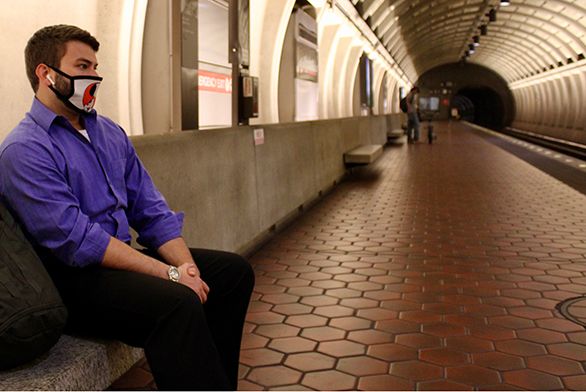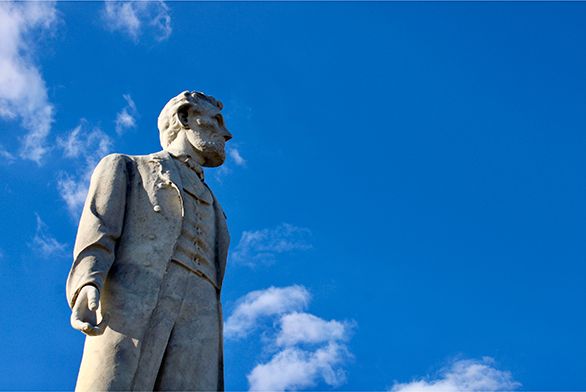A Day at the Department of Justice: Tyler Mazur (A20)
July 1, 2021 | By Tyler Mazur

At the end of the 2020 spring semester, we sat down for a conversation with then-rising senior Tyler Mazur (A20), who discussed his experience in the military, the “diverse intellectual foundation” of the St. John’s Program, and what he expected from his upcoming job at the United States Department of Justice. Approximately one year later, we caught up with Mazur again to discuss life in the Department of Justice’s Antitrust Division and how his work relates to the Program. Read his reflections below and view more photos on the Annapolis Instagram account!
The day begins with a ride down the Red Line to Judiciary Square, then up to the Antitrust Division’s offices of Transportation, Energy, and Agriculture (TEA). Within these three cross-sections of society alone, there’s plenty to keep a paralegal busy—from assessing the competitive overlap of two merging solar panel producers in the Central Valley to speculating how much a change in sugar imports will affect the cane refiners of the Gulf Coast versus the beet farmers on the Upper Plains, and everything in between.
In short, each new case is another crash course in economics and another thrill of diving into new subjects. The work and the research are fascinating in levels from the abstract to the very human. On one hand, you begin to get a sense of the sheer amount of compounded capital floating out there in the ether, so to speak, as you run the numbers on holding companies that seemingly exist only to crawl across the corporate ecosystem and flip other holding companies as they go. On the other hand, any day is very grounding when it entails a conference call with the members of such and such cooperative or the manager of a factory that happens to be the lifeline of such and such county.

Even after spending four years in the company of some truly insightful tutors and studious peers, it took working a job like this and reviewing hundreds to thousands of public, confidential, and sometimes very private documents, as well as working through decades of legal precedent—all in a town chock-full of institutes, universities, think-tanks, and archives, no less—to truly appreciate my intellectual experiences and relationships. Perhaps equally as important, I quickly realized that the idea of Justice which I developed as a child when looking up the steps of my local courthouse and seeing a blind arbitrator standing above the fray can be, at the very least, incomplete in a world of enforcements, injunctions, settlements, and ground-level data combing.
Yet these potentially overwhelming aspects of the job become invigorating given the sheer flexibility in which my teammates and I address them. When my team meets to discuss our findings and associated speculations, paralegals, attorneys, and economists all give their unique perspective, and the experience is not unlike the biweekly seminar. It is exactly this kind of open-mindedness and scope of work that excites me as I continue my legal expertise and strive to appreciate all paths and solutions available.

